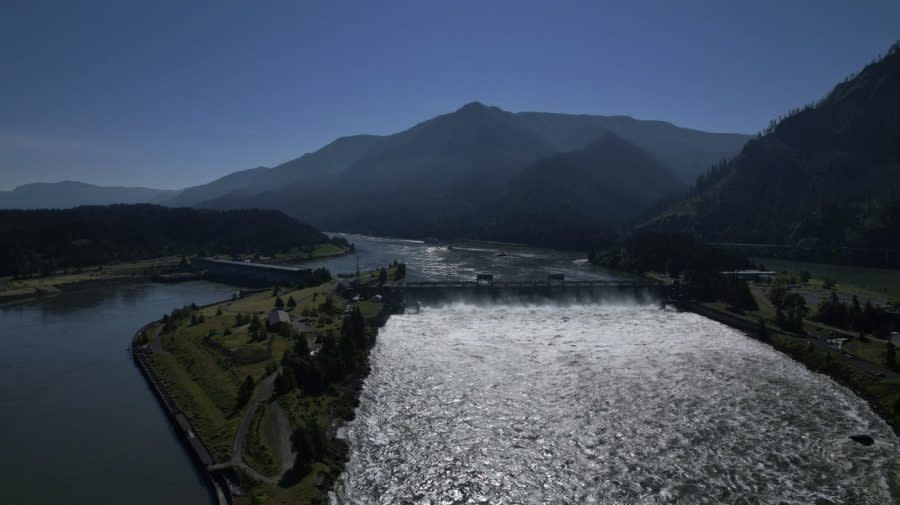US acknowledges harm to tribes from Pacific Northwest dams

The U.S. government is acknowledging that hydropower dams in the Pacific Northwest have harmed tribes.
A new report from the Interior Department showed that dams built in the early 1900s along the Columbia River blocked fish migration and flooded thousands of acres — including sacred sites and burial grounds.
Accordingly, the government acknowledged, tribes lost access to salmon that had historically provided them sustenance.
“Acknowledging the devastating impact of federal hydropower dams on Tribal communities is essential to our efforts to heal and ensure that salmon are restored to their ancestral waters,” Interior Secretary Deb Haaland, the U.S.’s first Native American Cabinet secretary, said in a written statement.
The report states that their impacts included flooded villages that displaced people, impacted burial grounds, and impacted ecosystems of the river itself.
It specifically lays out harms to the Coeur d’Alene Tribe, the Confederated Tribes and Bands of the Yakama Nation, the Confederated Tribes of the Colville Reservation, the Confederated Tribes of the Umatilla Indian Reservation, the Confederated Tribes of the Warm Springs Reservation of Oregon, Nez Perce Tribe, Shoshone-Bannock Tribes of the Fort Hall Reservation, and the Spokane Tribe of Indians.
The Biden administration has taken steps to attempt to restore salmon in the Columbia River, including a 10-year plan that could involve dam removal.
The administration said in December that it had reached an agreement with state and trial leaders, which would contribute more than $1 billion to restoration.
Copyright 2024 Nexstar Media, Inc. All rights reserved. This material may not be published, broadcast, rewritten, or redistributed.
For the latest news, weather, sports, and streaming video, head to The Hill.

